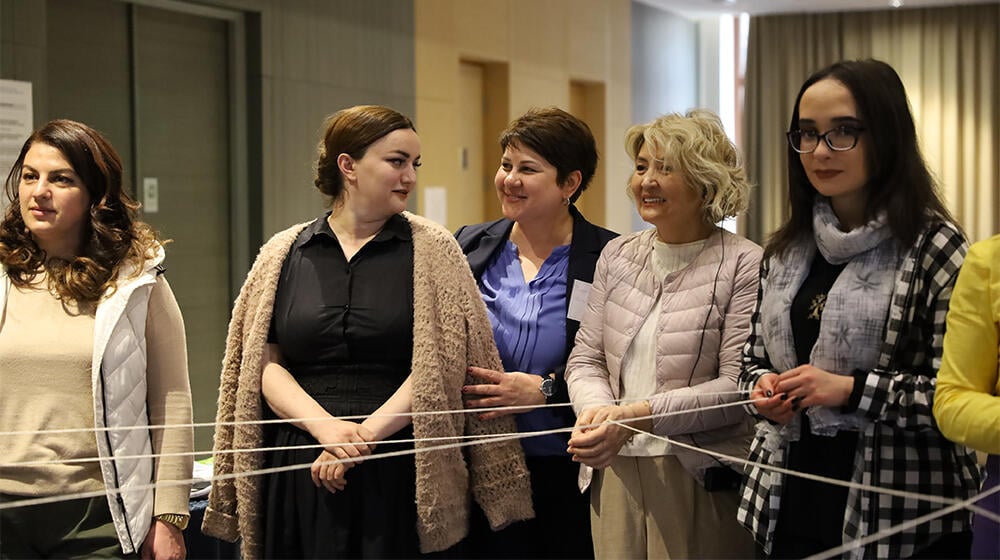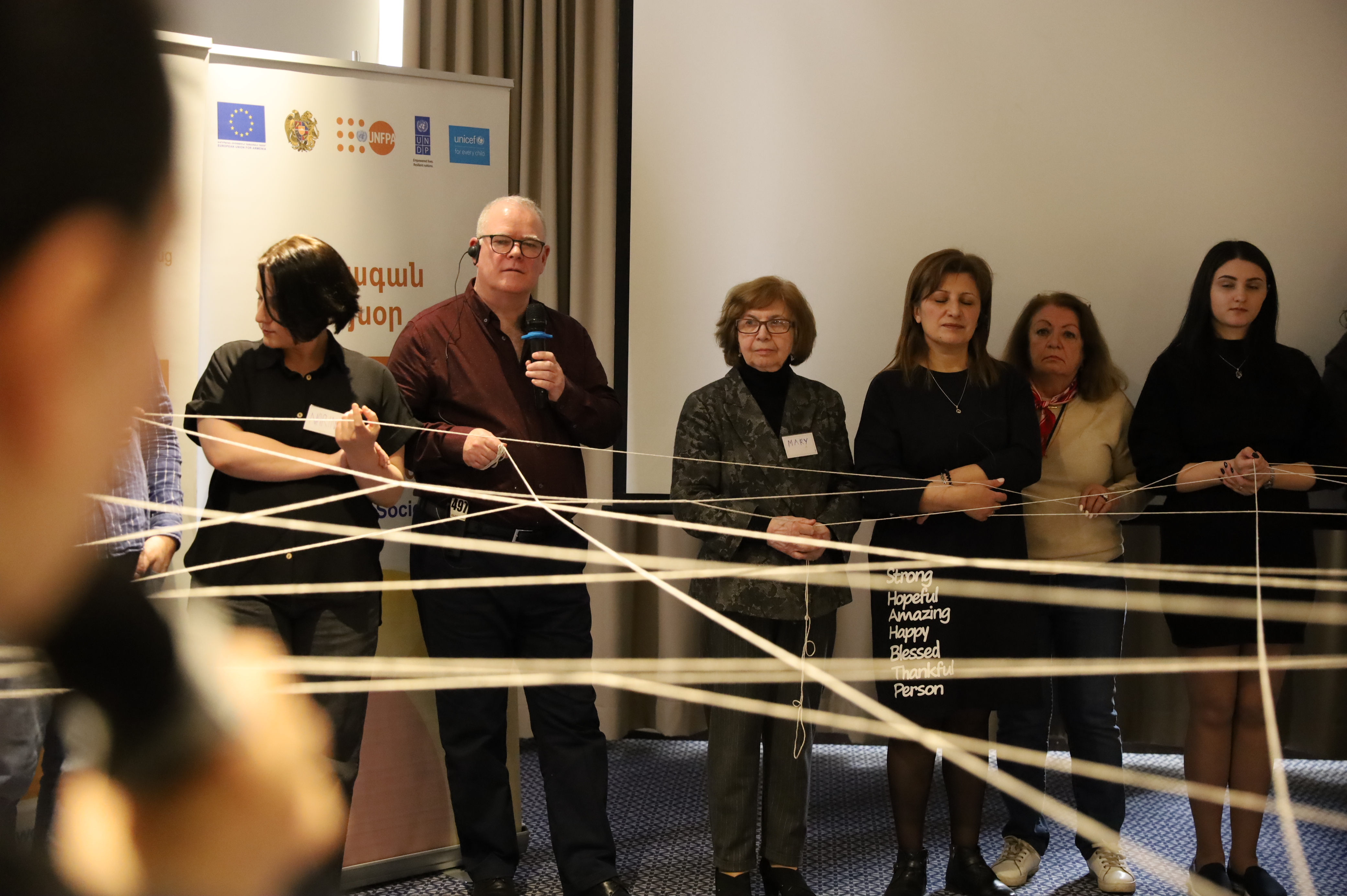
Thirty-five healthcare professionals, state and non-state actors, advanced their understanding of men and boys engagement in gender equality through participation in the two-day workshop organized by UNFPA Armenia. The workshop, held on April 15-16, focused on exploring effective practices of men engagement and identifying the best methods for promoting equitable parenting. The event was a joint effort by UNFPA Armenia and Equimundo, with its gender expert Patrick Welsh facilitating the sessions and providing practical insights on promoting gender equality and equitable fatherhood.
In 2022, the first workshop on engaging men and boys in promoting gender equality was held, and the feedback from participants was positive. According to Eduard Israyelyan, the program manager of the "Future Today" program at the UNFPA Armenia office, the workshop's results led to the development of a Handbook on engaging men and boys in gender equality. The Handbook will be further refined based on the results of the new workshops.

"We plan to organize another workshop in about two months, focusing on new topics to enhance participants' knowledge further. A wide range of professionals will be invited to share the knowledge and skills with their respective parties. The aim is to deepen professionals' understanding of the strategies for engaging men and boys in promoting gender equality, enabling effective implementation in Armenia," pointed out Eduard Israyelyan.
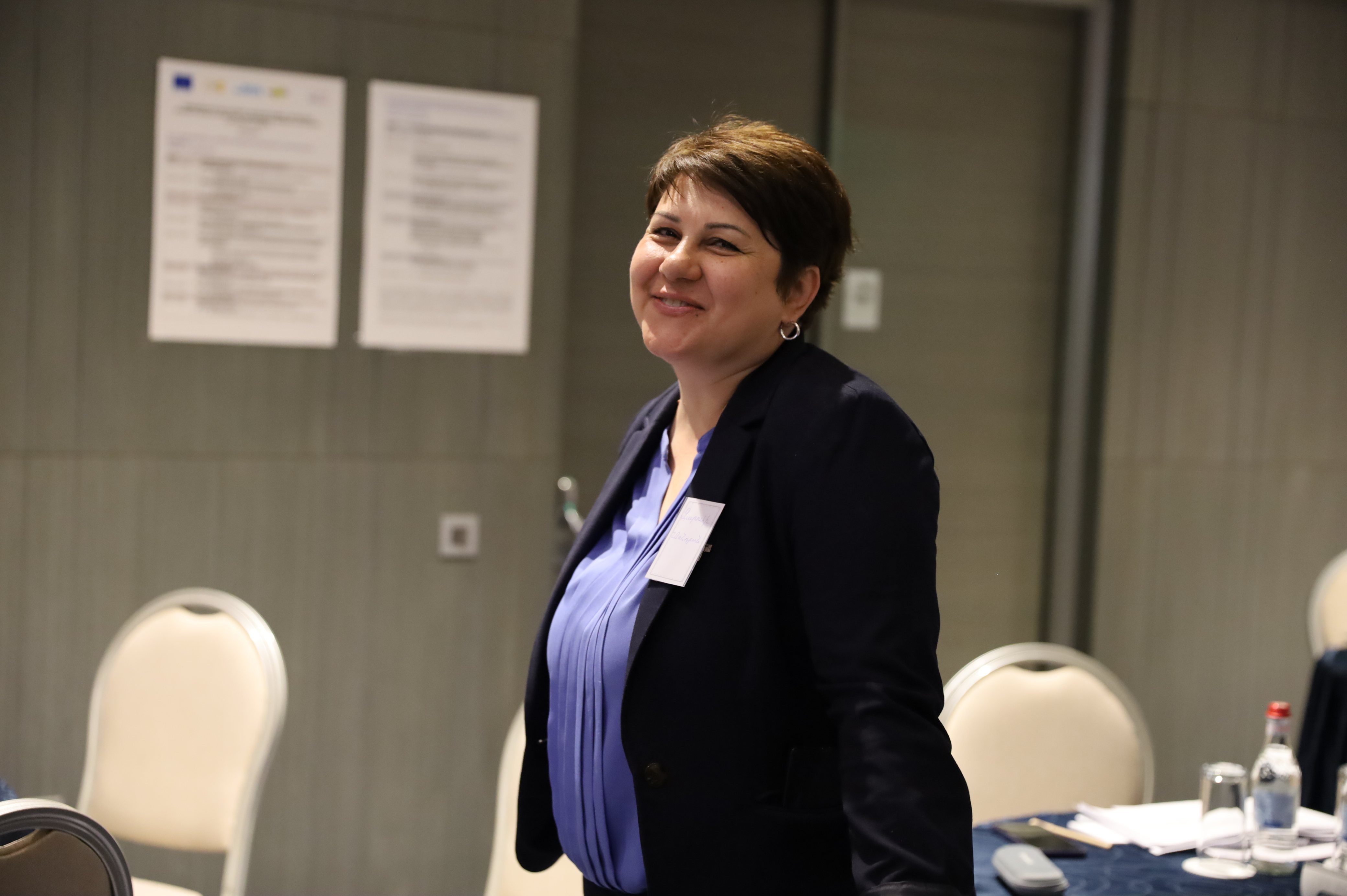
"For healthcare providers, the workshop is particularly important since it shows the importance of fathers' engagement in decision making processes related to family planning. Since the focus of the second day of the workshop was on reproductive health, participants learned how fathers could be involved throughout pregnancy, from antenatal to postnatal care and parenting," said Zaruhi Tonoyan, "Addressing Gender-Biased Sex Selection and Related Harmful Practices in the South Caucasus: Support to Regional, National and South-South Interventions" programme coordinator.
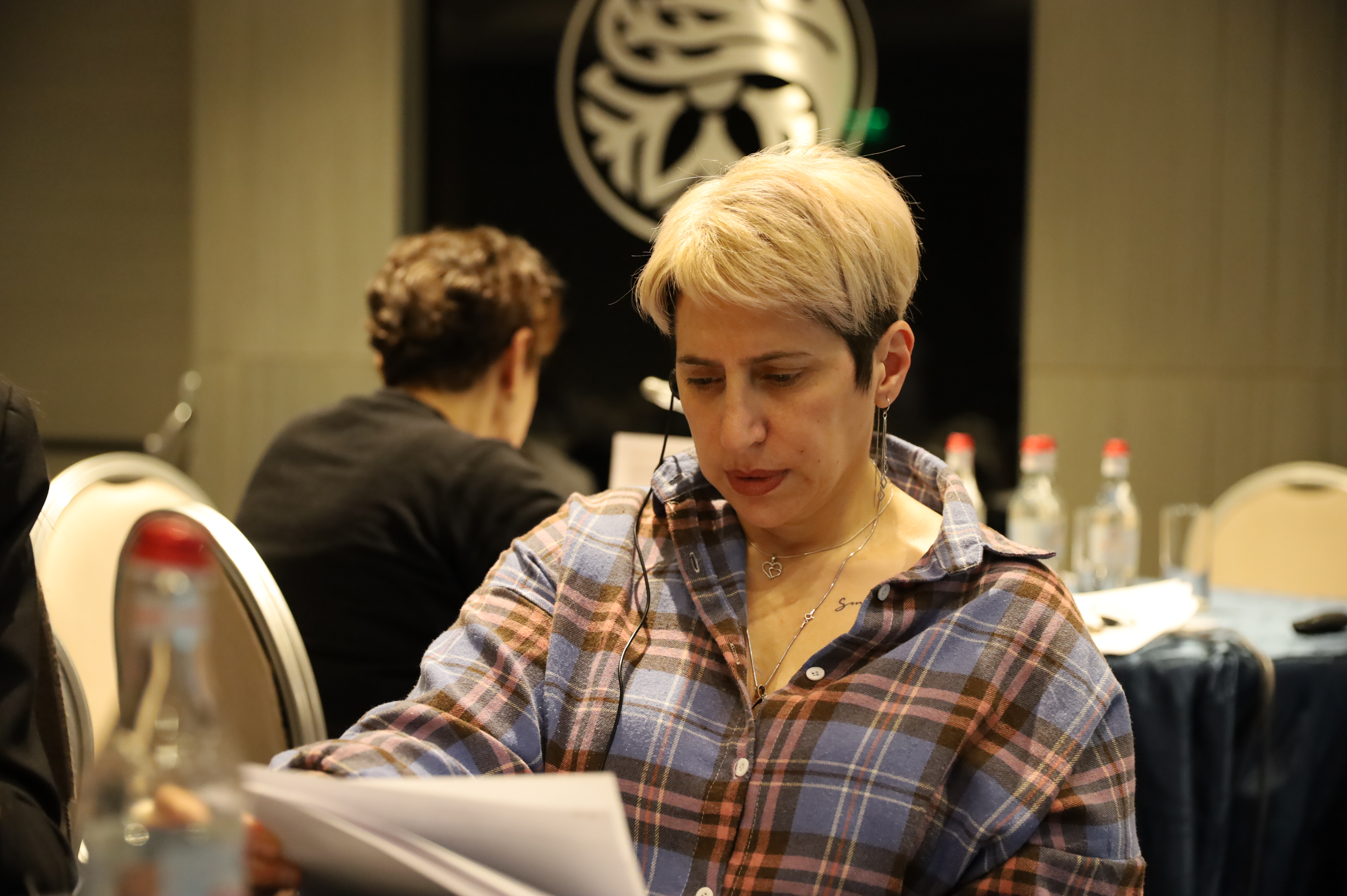
Armine Aslanyan, head of the Gynecology Department of Aparan Medical Center, stressed that men's involvement in reproductive health and child care is essential. “The course was very relevant and presented a number of ways and strategies. Men are often not involved in pregnancy planning and general child care. Unfortunately, often, pregnant women visit the hospital with their mothers-in-law or other female family members. Different structures and parties must work together to contribute to achieving results.”
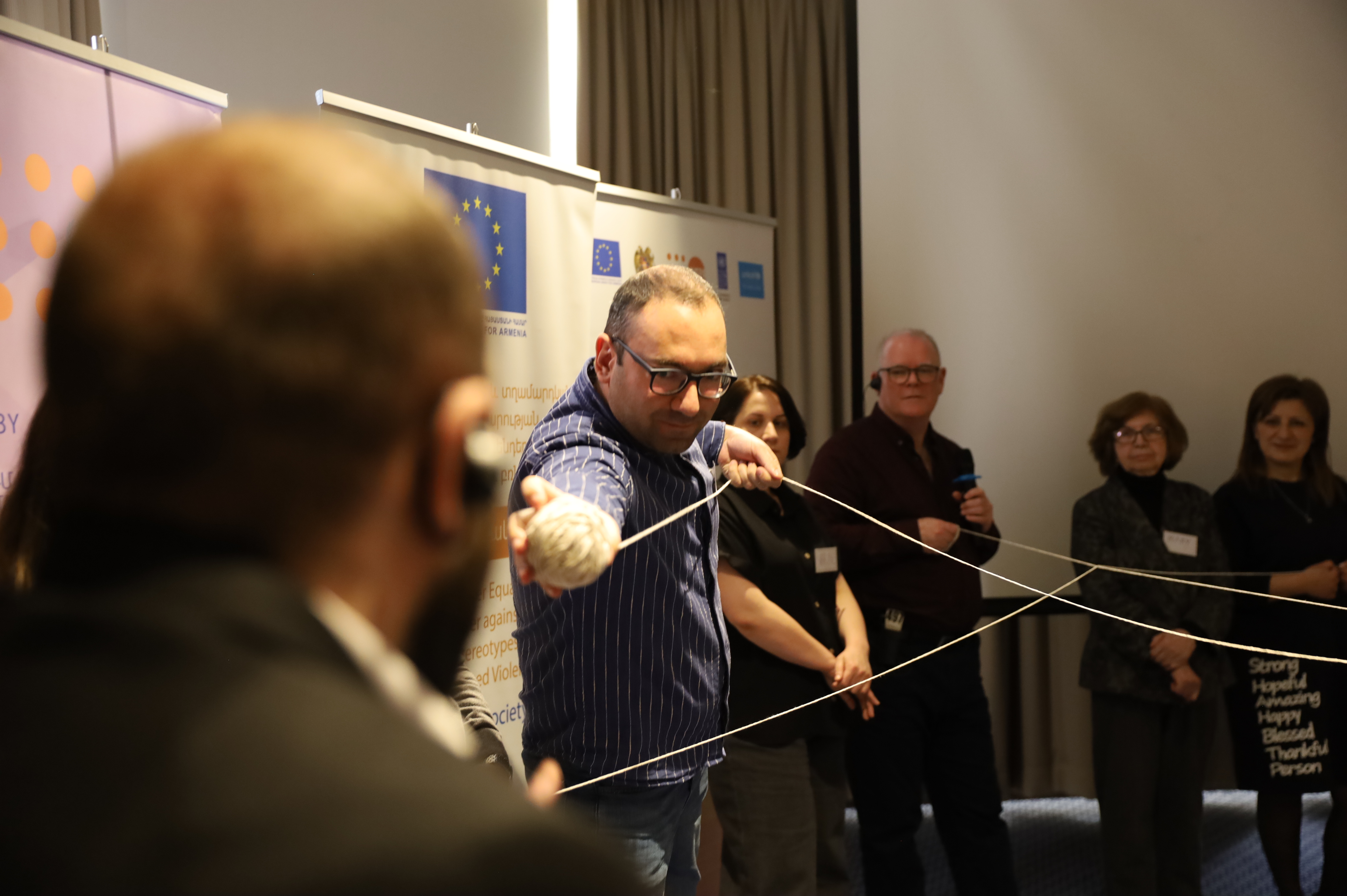
The workshop also focused on the involvement of men and boys in preventing domestic violence and provided insights on how to work with men's groups.
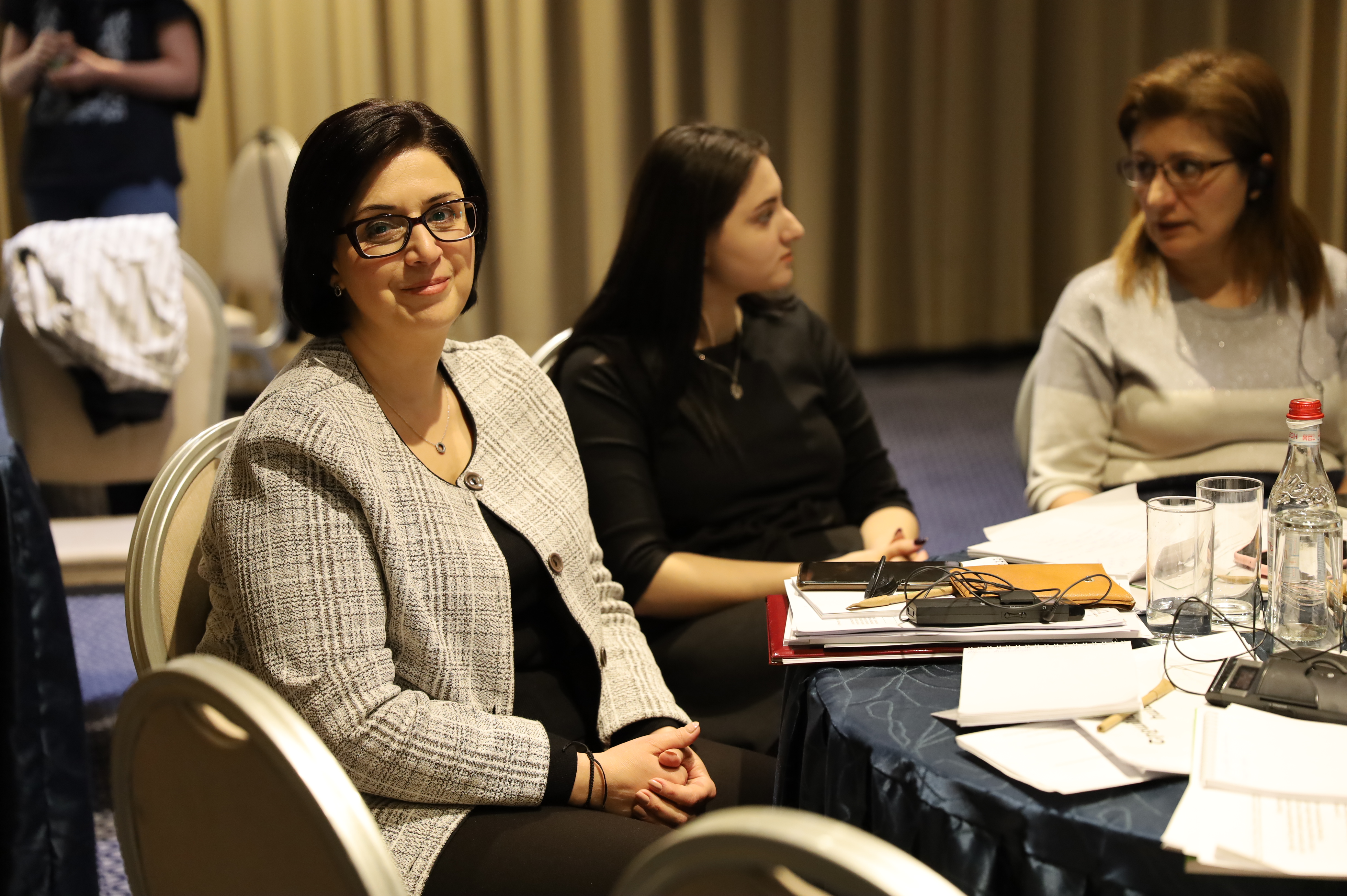
"I particularly found the work in men's groups to be remarkable. We have women's support centers and men's rehabilitation centers. Yet, we can also think of having men's support centers that will work with men, provide psychological support, and thus, have a preventive role," mentioned Armine Gevorgyan, Colonel of the RA Police and Deputy Head of the Domestic Violence Prevention Department.
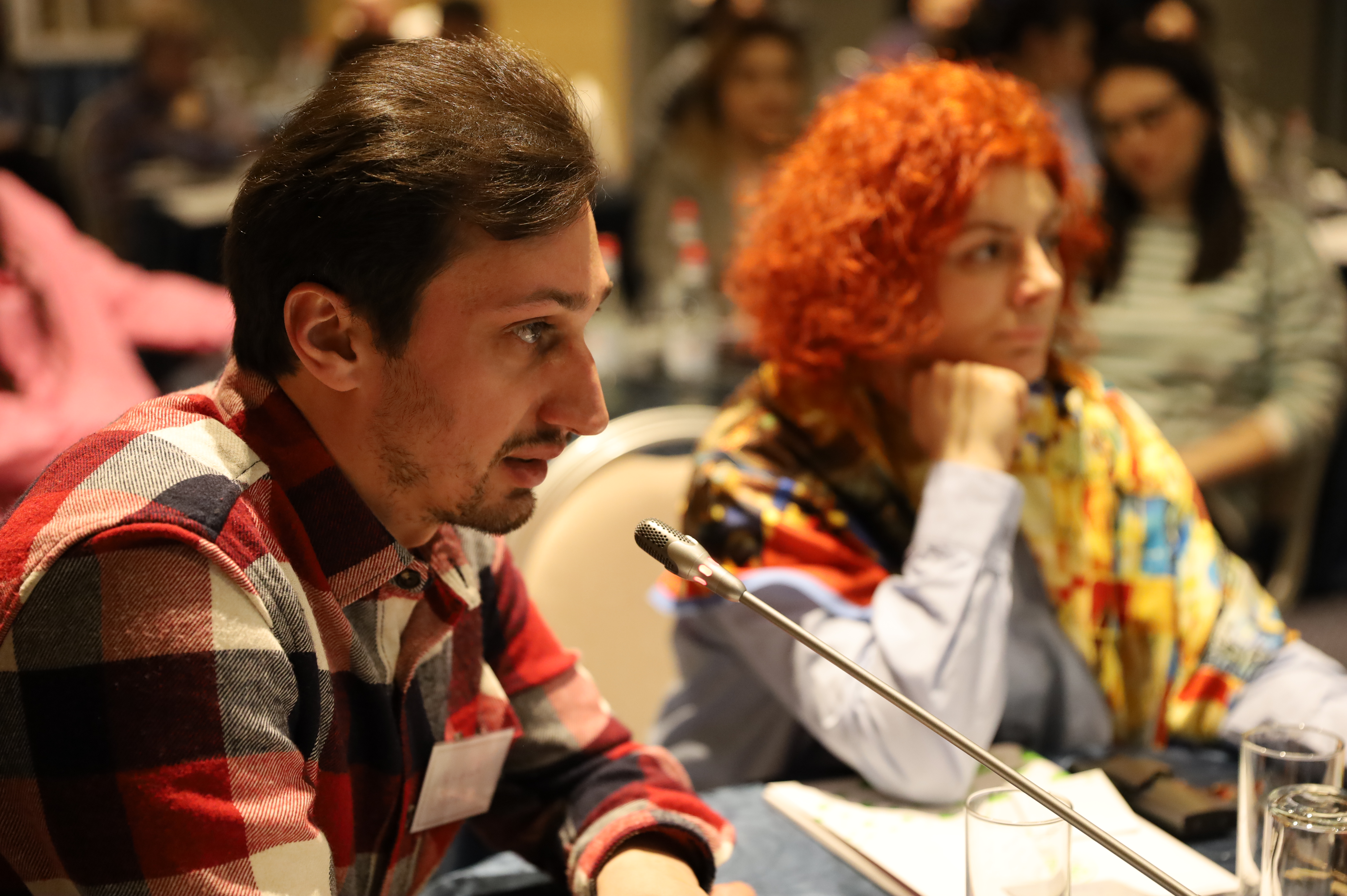
Sipan Asatryan, a member of the Coalition for Inclusive Legal Reforms, emphasized, "We have quite discriminatory perceptions about each other. So, getting messages about the importance of equality is very important, especially among young people. A child follows the behavior of his parents. If we can form the right way of thinking among fathers today, the children will follow their thinking and behavior, and hence, we will have a healthier society in the future."

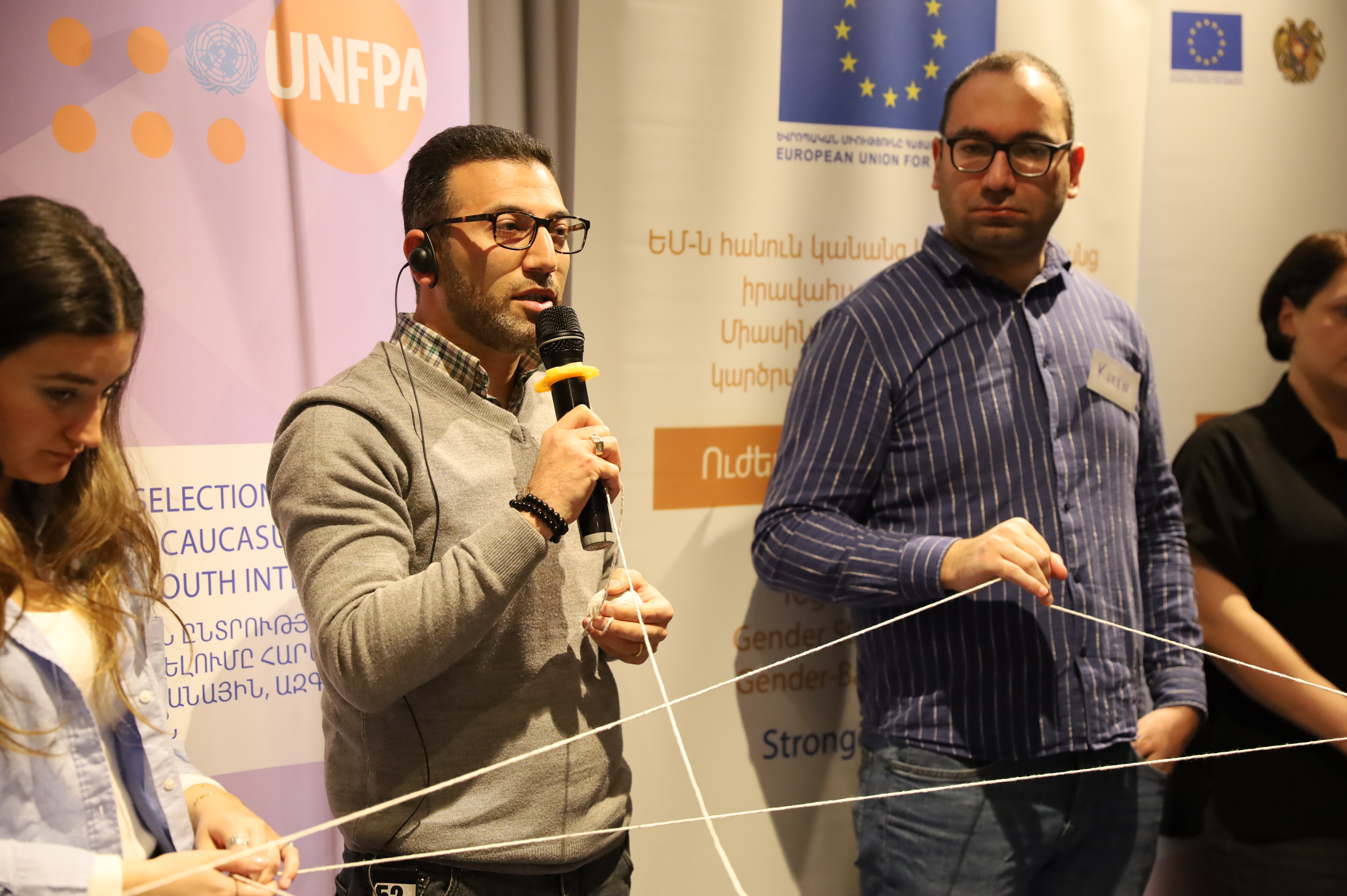
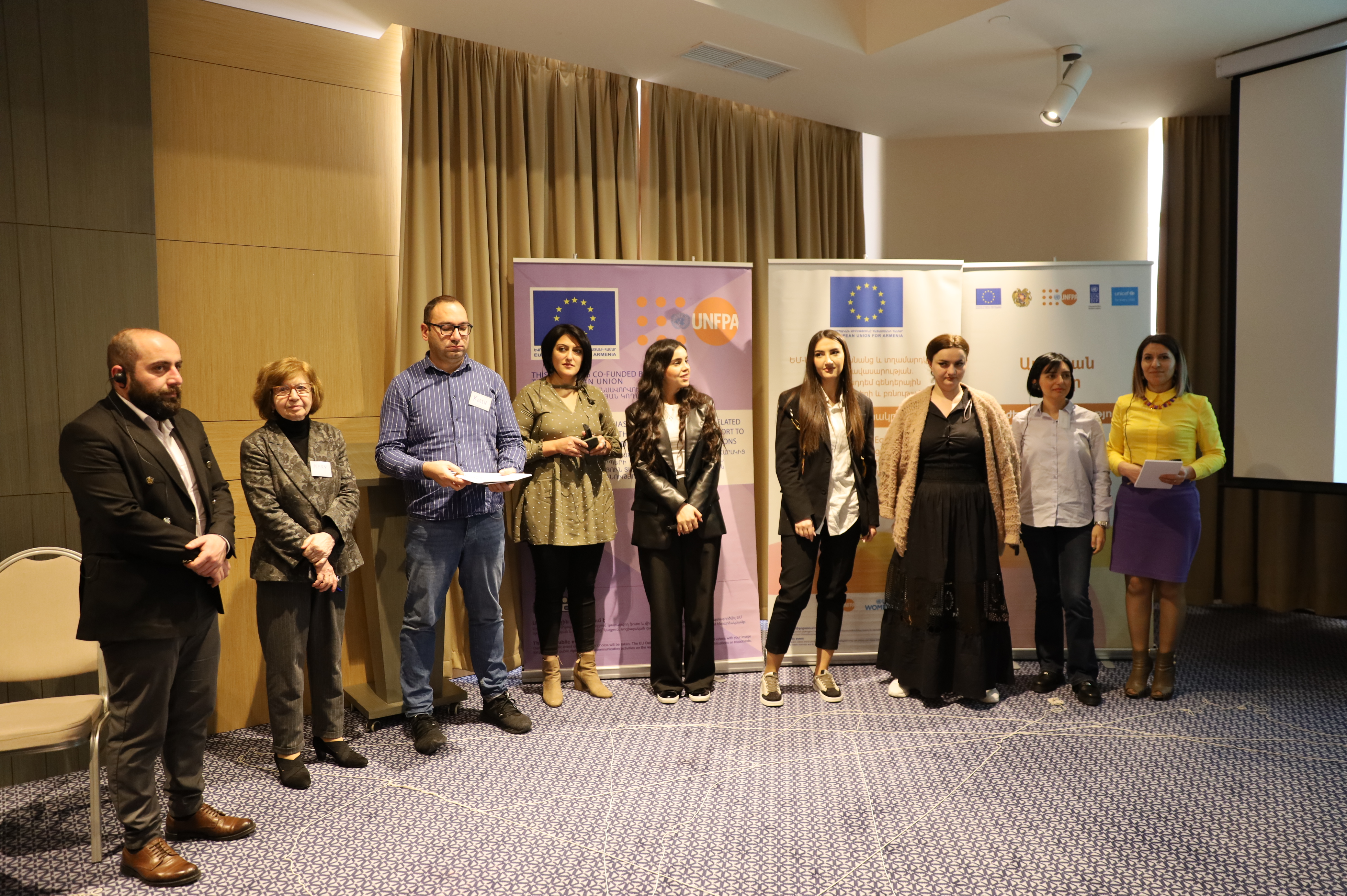
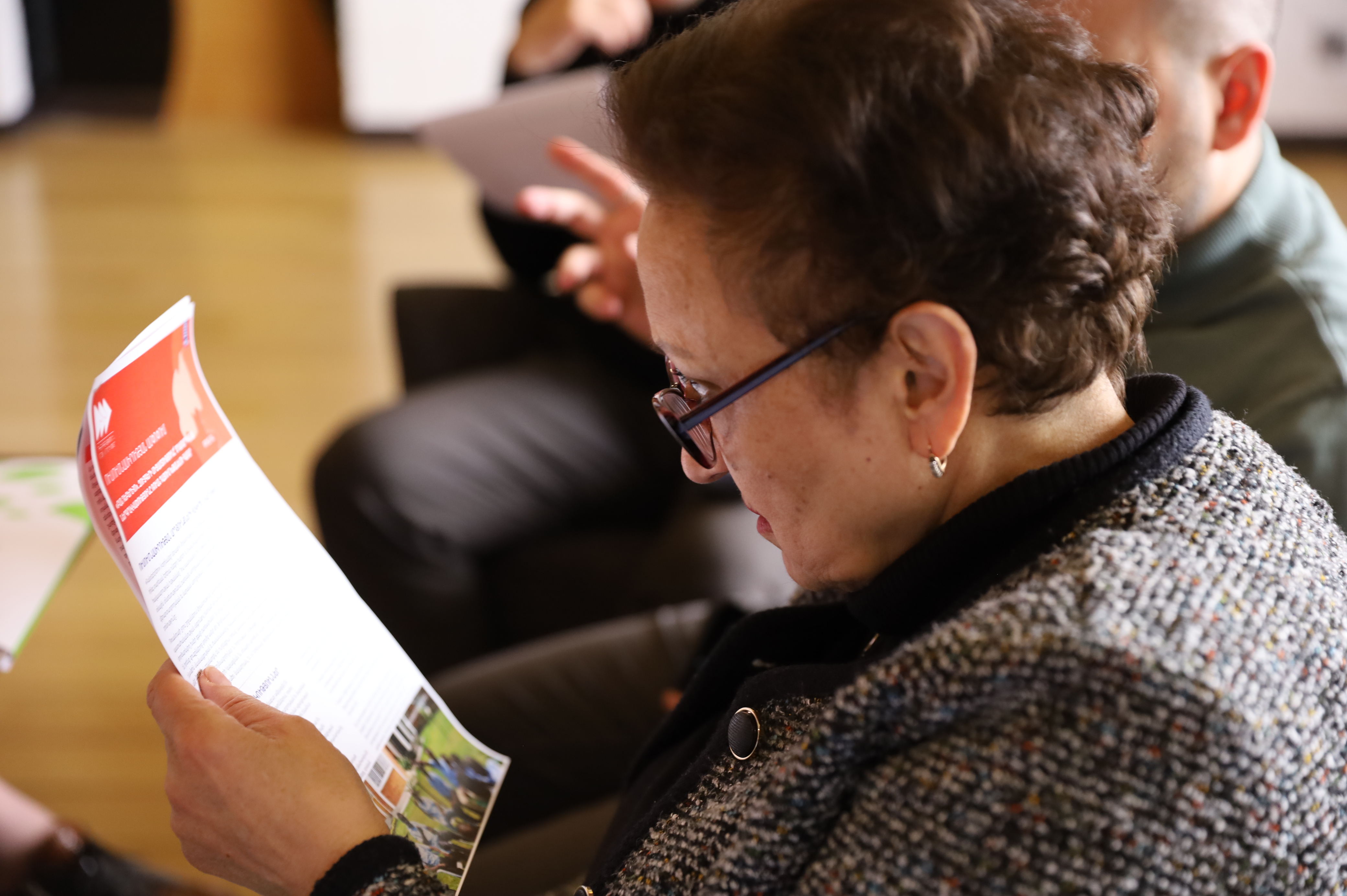
The UNFPA Armenia conducted the workshop in the framework of the EU-funded "Addressing Gender- Biased Sex Selection and Related Harmful Practices in the South Caucasus: Support to Regional, National and South-South Interventions" project, "FUTURE TODAY: Empowering women, youth and children for deepening democracy in Armenia" Project and "EU 4 Gender Equality: Together against gender stereotypes and gender-based violence" regional programme.
This article was produced with the financial support of the European Union. Its contents are the sole responsibility of UNFPA and do not necessarily reflect the views of the European Union.

